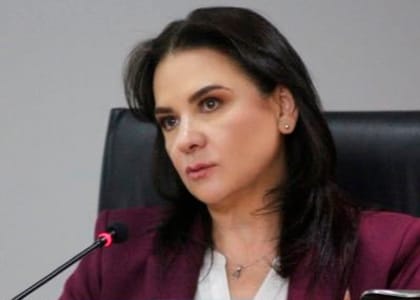
Por Julieta del Río, comisionada del INAI.

No debemos caer en la tentación de vulnerar derechos ajenos; defendamos los nuestros y actuemos en consecuencia.
Datos vienen, datos van, cada quien tiene “sus datos”. En el día a día escuchamos el concepto “datos”, pero cuando se le agrega la palabra “personales”, ahí cambia la situación. Los datos personales tienen dueño, sí, pertenecen a cada persona y solo los titulares de los mismos pueden dar su consentimiento para su uso.
Los sujetos obligados (instituciones públicas) tienen bajo su resguardo millones de datos personales de ciudadanas y ciudadanos que, de acuerdo a sus atribuciones, acuden y otorgan su información, como en el sector salud, en educación, fiscalías, programas sociales y cualquier actividad que vincule a las autoridades con sociedad. Por ley, estos sujetos obligados deben garantizar la seguridad física y tecnológica de los datos personales, pero sobre todo no exponerlos públicamente, porque eso es un delito.
Esta semana vimos casos que llamaron la atención de la opinión pública, como el del titular del Ejecutivo Federal, quien proyectó en la pantalla de Palacio Nacional la carta enviada por la periodista Natalie Kitroeff (del medio The New York Times) a la oficina del coordinador de comunicación social de la Oficina de la Presidencia de la República, lo que permitió la visualización del teléfono de contacto de la reportera.
Y hablando del tema, hace un par de días estuve en la Universidad de Harvard como invitada para hablar de la inteligencia artificial cuyo principal combustible, por cierto, son los datos personales. Ahí expuse que el tema cobra relevancia en el marco del proceso electoral federal de este año, en el que se elegirán más de 19 mil cargos en distintos estados. El uso malicioso de las nuevas tecnologías puede desinformar a las personas sobre su contexto inmediato y sobre lo que ocurre en el país. El desconocimiento es una mina de oro para los candidatos y los partidos políticos.
Precisamente, la desinformación se combate con información. ¿Por qué afirmo esto? Porque en la Constitución se establece, en el artículo 16, que nadie puede ser molestado en su privacidad, y la ley es la ley.
Sin embargo, contrario a ello, vemos en redes sociales que la protección de datos personales no se respeta en este país. Lo que sí sabemos es que en México existe el Instituto Nacional de Transparencia, Acceso a la Información y Protección de Datos Personales (INAI) para denunciar y para investigar de oficio casos de máximo interés público. Lo que no es permisible son los ataques contra el Instituto; el INAI no es candidato, sino una institución con deberes y principios que no pidió ser arrastrado a un juego político.
No permitamos que, como personas con derechos, se exhiba nuestra esfera más íntima que son nuestros datos personales. Reitero que el INAI está abierto para cualquier persona que quiera denunciar; se actúa de oficio cuando se identifica a la persona que vulnera los datos de alguien más, sea esta una empresa o una institución responsable del indebido tratamiento.
Cualquier país en democracia debe estar abierto a la diferencia de ideas, pero siempre en el marco del respeto a las leyes y a la Constitución; nadie por encima de ella. Toda pugna política debe suscribirse a los principios democráticos del respeto, la tolerancia y el apego al estado de Derecho.
Las opiniones expresadas son responsabilidad de sus autoras y son absolutamente independientes a la postura y línea editorial de Opinión 51.






Comments ()